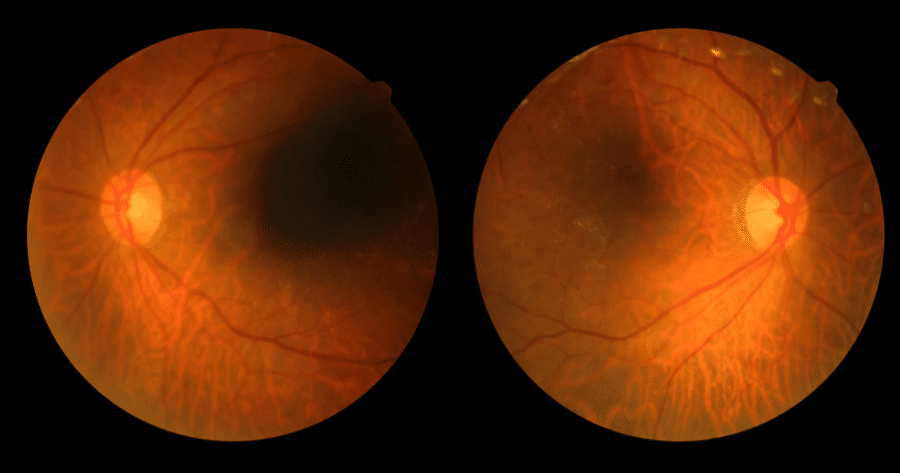Diabetic Retinopathy
Diabetic Retinopathy Specialist in Georgia

Diabetic Retinopathy: Symptoms, Stages, and Treatment for Vision Protection
Diabetic retinopathy is a progressive eye condition that affects people with diabetes and remains one of the leading causes of vision loss in adults. At Georgia Vision Institute, our experienced ophthalmologists are dedicated to diagnosing and managing diabetic retinopathy and diabetic eye disease using advanced technology and personalized treatment plans designed to preserve your vision at every stage.
What Is Diabetic Retinopathy?
Diabetic retinopathy occurs when chronically high blood sugar levels begin to damage the tiny blood vessels that supply the retina. Over time, this damage weakens the vessel walls, leading to leakage, swelling, and in more severe cases, the growth of abnormal blood vessels that threaten the structure and function of the retina. The longer a person has diabetes, the higher the risk of developing this condition, especially if blood sugar, blood pressure, and cholesterol are not well controlled.
Stages of Diabetic Retinopathy
There are two main stages of diabetic retinopathy. The early stage is non-proliferative diabetic retinopathy, during which existing blood vessels in the retina begin to leak or close off. Vision changes may be minimal or go unnoticed at this stage, but damage remains beneath the surface. As the disease progresses, it can develop into proliferative diabetic retinopathy. This advanced condition is more serious and involves the growth of new, fragile blood vessels on the retina’s surface. These vessels are prone to bleeding and can lead to complications such as retinal detachment or sudden vision loss.

Symptoms of Diabetic Retinopathy
One of the most challenging aspects of diabetic retinopathy is that it often presents no symptoms in the early stages. As the disease worsens, patients may experience blurred or fluctuating vision, dark spots or floaters, trouble seeing clearly at night, or difficulty focusing on near and far objects. Sometimes, vision may decline rapidly if bleeding occurs into the vitreous cavity or the retina begins to detach. Because symptoms may not appear until significant damage has happened, individuals with diabetes must undergo annual eye exams, even if their vision feels normal. At Georgia Vision Institute, we use advanced diagnostic tools such as optical coherence tomography (OCT), dilated retinal exams, and fluorescein angiography to detect diabetic retinopathy as early as possible.
Diabetic Retinopathy Treatment Options
Managing diabetic retinopathy begins with controlling your underlying diabetes, including blood sugar, blood pressure, and cholesterol. No immediate treatment may be needed beyond monitoring and lifestyle management in mild or early stages. However, medical intervention becomes necessary when the condition affects vision or progresses toward the proliferative stages. Our team offers a range of treatment options, including anti-VEGF injections to stop abnormal vessel growth and reduce fluid buildup and laser photocoagulation to seal leaking blood vessels and stabilize the retina. For advanced cases involving vitreous hemorrhage or retinal detachment, vitrectomy surgery may be recommended.
Schedule a Diabetic Retinopathy Eye Exam in Georgia
Each patient’s treatment plan is customized based on their condition’s severity, overall health, and how the disease affects their vision. At Georgia Vision Institute, we prioritize patient education and one-on-one guidance to help you understand your options and take an active role in your eye health.
Diabetic retinopathy doesn’t have to result in vision loss, but early diagnosis is critical. Our specialists are here to help you navigate the challenges of diabetic eye disease and protect your vision through compassionate, expert care. Reach out to schedule a consultation.